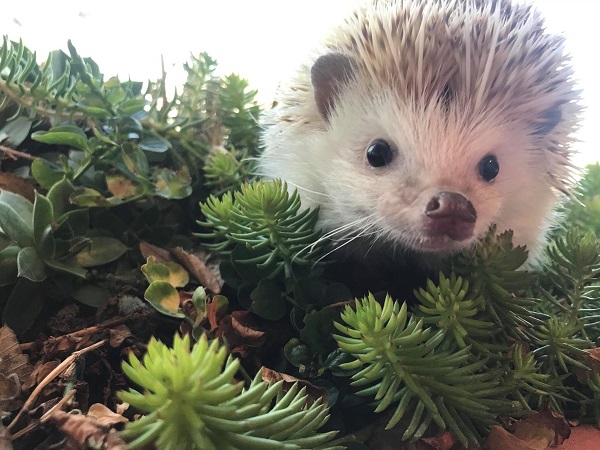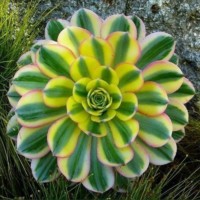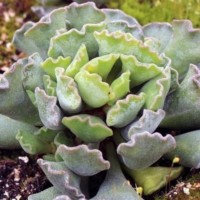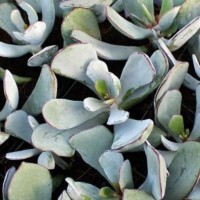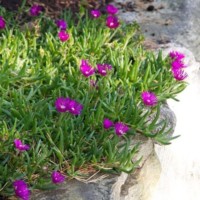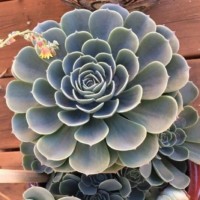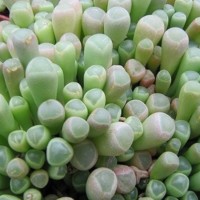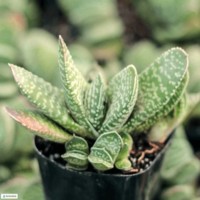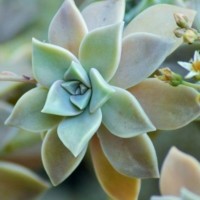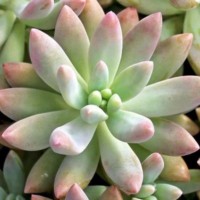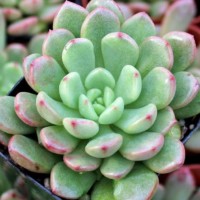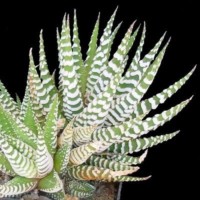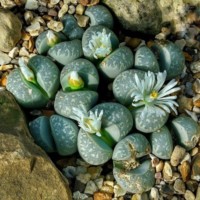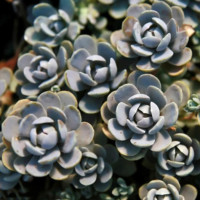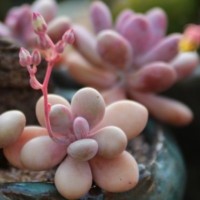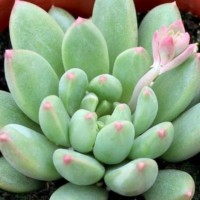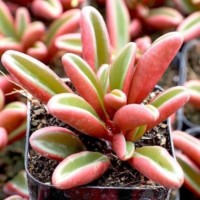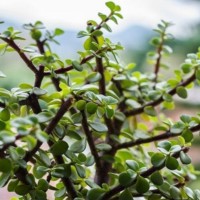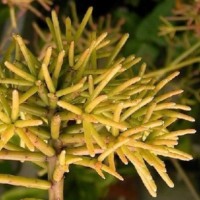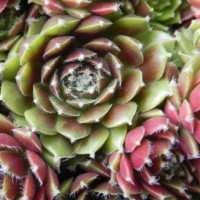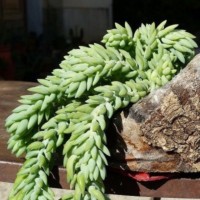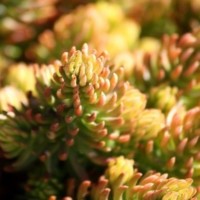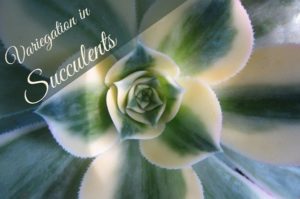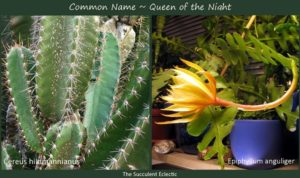You have probably guessed by now that I really love succulents. 🙂 But did you know that I also have three cats and I love them to pieces? Their health and well-being mean everything to me. So let’s take a look at some important questions, like are succulents poisonous to pets? Why are some plants poisonous? How to know which are toxic plants? My goal is to give you strategies to ensure your pets and plants live together safely. At the end, I have provided a list of toxic succulents, as well as a list of pet-safe succulents with pictures!
Are Succulents Poisonous?
In this Post We'll Cover:
{Please note, some links in this post may be affiliate links to sites that pay me a small commission if you click on the link and make a purchase. This commission is at absolutely no cost to you. I only recommend products and companies that I have worked with and truly love! ~Kat}
What’s Up with Toxic Plants?
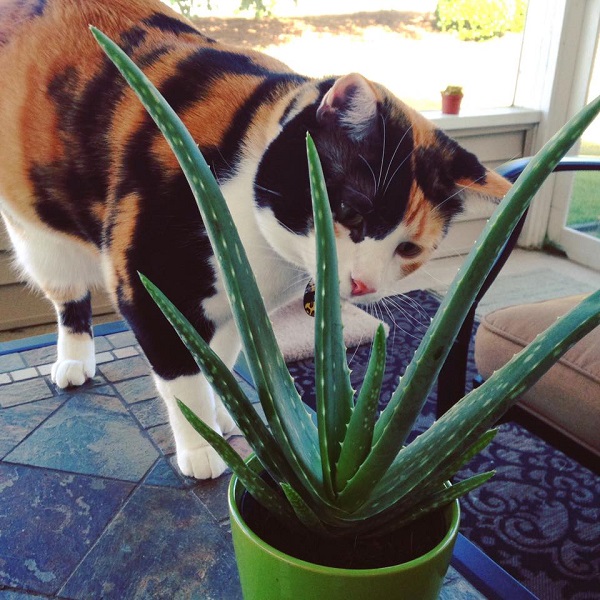
photo by Grace Nelson[/caption]
Many of the plants and succulents we love for our garden have evolved strategies to protect themselves from hungry herbivores. Because plants cannot run away, they need others ways to discourage animals from eating them. Some develop thorns and sharp spines, others have a dreadful taste, and some are downright toxic. Since the point of these defenses is for the plant to avoid being eaten, they advertise their toxicity through smell. You or I would never notice the warning scent, but deer and rabbits and other animals certainly do! Just a (very) few toxic plants common to gardens are lily of the valley, azaleas, daffodils, hydrangeas, daylilies and potatoes.
Grace Nelson’s beautiful calico Yoko investigates an Aloe vera in the photo above. Fortunately, she knows better than to nibble, for aloes are toxic to both cats and dogs. Cats are still so close to their wild nature, that those who spend some time outdoors still retain their instincts to avoid plants that are toxic to them. My cats show no interest whatever in toxic plants in my garden. Some indoor-only cats no longer listen to this instinct and may nibble on plants that will harm them. Either skip those toxic plants or keep them out of reach. Most domesticated dogs pay no attention to the smell of a toxic plant, so they should be safeguarded from chewing on plants that may be harmful to them.
Thank you, Grace Nelson, for the use of this photo! Check out Grace’s fun and funky Instagram profile!
So, Are Succulents Poisonous?
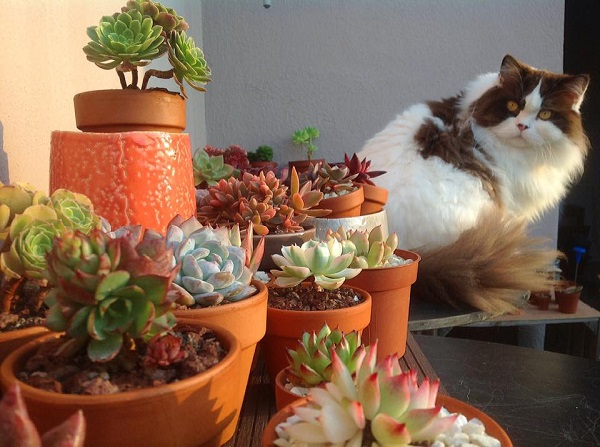
photo by CocoMG
Are succulents poisonous? Fortunately for animal lovers, many succulents are not toxic to pets. Certainly, some can make your pet quite sick if they were to chew on them, but there are many excellent choices for non-toxic plants. Coco MG loves her succulents, but I am certain her furry friends (10 gorgeous cats and one very cool bunny) come first! In her photo above, the lovely Picorette seems to be contemplating mischief, but she does not sample the plants. Even so, Coco is careful not to have any toxic succulents in her home or garden, just to be on the safe side. She creates a colorful display with her echeveria, sedum and aeonium without including any toxic plants.
When researching the toxicity of the plants you wish to include in your home with your pet, please be certain to check the plant’s scientific name. It is simply not good enough to use just the common name. Are donkey tail succulents safe for your pet? Well, that depends. If you mean Sedum morganianum, then yes! But the Euphorbia myrsinites, also called donkey tall, is highly toxic! A widely respected home blog correctly listed the pearl plant (Haworthia pumila) as safe for pets. However, for over a year, the image they showed with the name was for the string of pearls, or the highly toxic Senecio rowleyanus. Pearl plant / string of pearls — It’s an easy mistake, with potentially tragic consequences. Scientific names can be long and cumbersome. But using them is the only way to be certain which plant you are talking about.
You should check out Coco MG’s gorgeous Instagram feed for more shots of her luscious succulents and fabulous furry friends. Thanks so much, Coco, for the use of this photo!
Which Succulents are Toxic Plants for Pets?
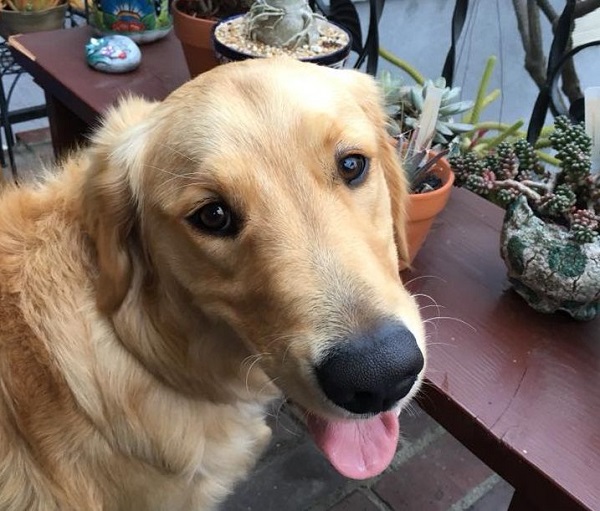
photo by Mui Lay
Mui Lay’s beautiful boy, Hero, watches over her succulent collection and knows not to taste them. For less well-behaved furry friends, this list of succulent toxic plants is not exhaustive. Please do not assume that any plant not listed here is safe — that is not the case. With that understanding, the following succulents are known to be toxic to pets: Agave, Aloe, Crassula, Euphorbia, Kalanchoe, Opuntia, Portulaca, Sansevieria, Schlumbergera (toxic to dogs), Senecio and Yucca.
It is important to understand that just because a plant is listed as toxic, it does not mean the succulent will harm your animal. As stated above, cats that spend some time outdoors will avoid eating toxic plants. Many pets have no interest in eating succulents (digging in, jumping on, and rearranging – those are different questions, but the plants won’t hurt them!) And most of the succulents listed as toxic will only cause real harm if ingested in large quantities. Still, it is better to be cautious, and best of all to be informed! 🙂
Thank you, Mui Lay, for the use of this beautiful photo! Check out Succulent Infatuation, Mui Lay’s Facebook group devoted to succulent enthusiasts!
How Pets and Plants Can Co-exist Safely
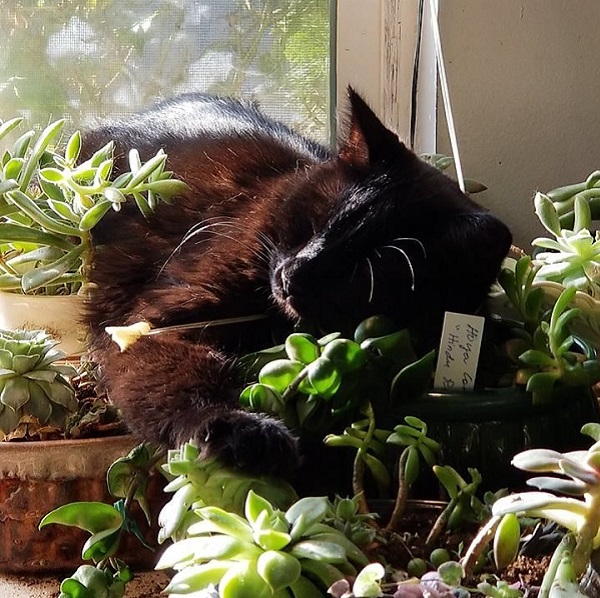
photo by Jessica Douglas
Though natural carnivores, cats and dogs love to eat grass and sometimes nibble other plants when no grass is available. It’s not entirely clear why pets eat grass. Certainly, it smells and tastes of nature, outdoors, the wild. This is especially exciting for pets that are confined indoors. There are important nutrients like folic acid and natural roughage in grass that aids in digestion. Animals will eat grass to soothe stomach upset or constipation. One excellent way to keep your pets from feasting on your succulents, whether they are toxic plants or not, is to grow your own pet grass. This is a safe, fast-sprouting set of seeds that grow quickly to provide the scents and tastes and nutrients your pet craves. Providing a safe source of plant material to eat will help you to keep your pets from snacking on your houseplants.
Work with your pets to discourage them from eating your succulents or any toxic plants. Watch them carefully, and deliver a firm “No!” just as they prepare to bite the plant. If need be, try spraying your plants with Bitter Apple, a non-toxic, plant-safe repellant spray that you won’t smell, but your pets will! Most of all, be sure to provide your pets with the exercise, play and attention they need to be happy and healthy. Even when their nutritional needs are fully met, a bored animal will eat your plants just for fun. However, even after a day full of exercise, good nutrition and play, sometimes a cat just wants to sleep sprawled among your succulents! Be honest now, have you never wanted to sleep with your arms wrapped around your favorite plants? Succulent dreams!
My thanks to Jessica Douglas for sharing this marvelous photo of her sweet Milo! I encourage you to check out Jessica’s spectacular artwork on her website!
Pet Safe Succulents with Pictures!
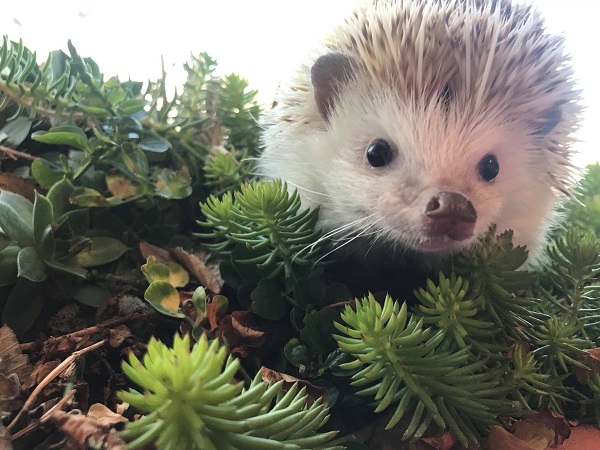
photo by Rebekah Chandler[/caption]
This entire article, I have been referring to pet safe succulents and those that are toxic plants. But I really mean safe and/or toxic for cats and dogs. The mast majority of data available is limited to succulents that are toxic to cats and/or dogs. Every animal species kept as pets has their own unique biochemistry. Some may have no trouble with plants toxic to dogs, while a plant that is safe for cats may well be a problem for your gerbil, tortoise, goat, horse, ferret or bird. Hedgehogs, as it happens, are highly resistant to many plant toxins, but my research did not cover them. So please, do your own research for all of these wonderful animals, and be safe!
Thank you, Rebekah Chandler for this fabulous shot of Randall! See more of Rebekah and Randall on her Facebook page here.
Now, onto the list of pet safe succulents! Research is ongoing, so this is not an exhaustive list. But feel free to enjoy the following succulents around your cats or dogs: Adromishus, Aeonium, Delosperma, Echeveria, Gasteria, Graptosedum, Graptoveria, Haworthia, Lithops, Pachyphytum, Pachyveria, Peperomia, Portulacaria, Rhipsalis, Sedum (both tender and hardy varieties) and Sempervivum.
Pet Safe Succulents:
More Information About Toxic Plants and Pets
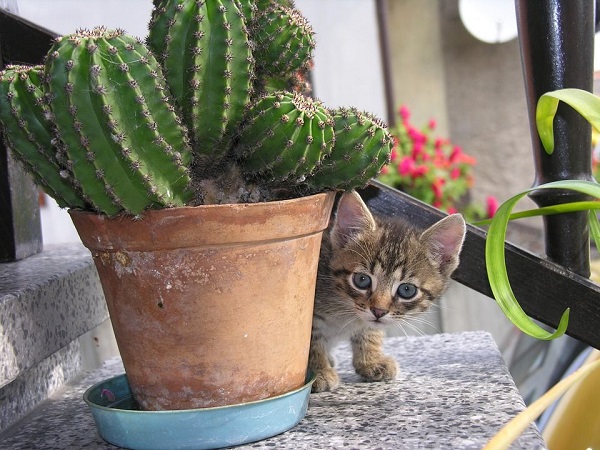
To learn more about pet safe succulents and pet-toxic plants in general, there are a number of excellent resources available to you. I used the following in researching this article: The Aspca Toxic and Non-Toxic Plants List is extensive and detailed. You can search by common name or by scientific name, and it will let you know whether the plant is safe or toxic for cats, dogs and/or horses. But it does not list toxicity for other animals, and it doesn’t have every plant. No single database does. Another great resource is the plant section of the California Poison Control System. The UC Davis Veterinary Medicine Toxic Plant Garden is a good resource for toxic plants for pets, though not specifically succulents. The Pet Poison Helpline has an excellent database of many toxic substances for pets, including many plants.
Dr. Robert Poppenga of UC Davis School of Veterinary Medicine was extremely patient and kind with me and my many questions. As was Dr. Bryan Stegelmeier of the USDA Poisonous Plant Research in Logan, Utah. Dr. Iris Whelan of the Mission Animal and Bird Hospital was very informative about the procedures veterinarians follow when a patient is reported to have eaten a suspicious plant. My sincere gratitude to each of these professionals for the assistance they gave me in researching this article.
If Your Pet Eats a Toxic Succulent
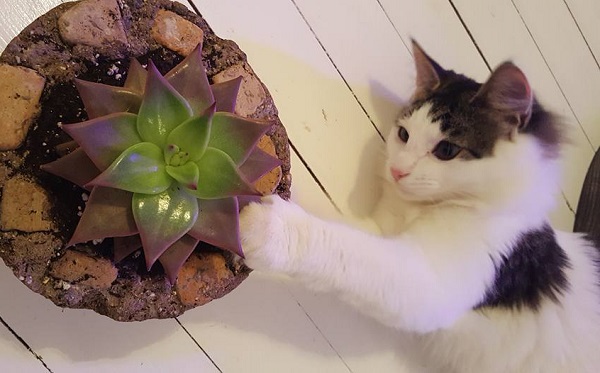
In this photo, Eva Tangstad’s curious kitten, Turbo, is safely investigating a non-toxic graptoveria plant. But some succulents will bite back. If your pet has eaten a plant you know to be toxic, or fear might be, take action at once. First, remove all pieces of the plant from your animal’s mouth, its vicinity and wash any bits from their face and coat. Call the Pet Poison Helpline at (855) 764-7661. There is a $59 fee, and you will have competent help 24/7 any day of the year. The ASPCA Animal Poison Control Center is (888) 426-4435. They, too, are staffed 24/7/365. There is a fee of $65. Do your best to describe the plant as completely as possible, and be ready to take it with you if you must make a visit to your vet or pet ER. Do not use home remedies to induce vomiting before seeking professional advice. And please – do not leave a comment on a blog post like this one asking for emergency advice. First, I am not competent to give emergency medical advice for your pet. And though I do my best to respond in 24 hours, you need immediate assistance if your pet has ingested something toxic.
Thanks so much, Eva Tangstad, for the use of Turbo’s picture!
Pets thrive when they have your time and attention, and a stimulating environment. Plants in the home and garden play an important role. Just be sure to educate yourself on the potential dangers of toxic plants. If your pet snacks on harmful plants, stick to pet safe succulents, or keep the plants up and out of reach. Please let me know if you have any questions — I am happy to help! And please say ‘Hi’ to your furry friends for me!

P.S. Please subscribe and receive my FREE course, 7 Steps to Succulent Success! Thanks!
P.P.S. Why not join my Facebook Group for succulent-lovers? We talk succulent care, propagation, identification and design. It’s a warm and welcoming group that would love to meet you!

